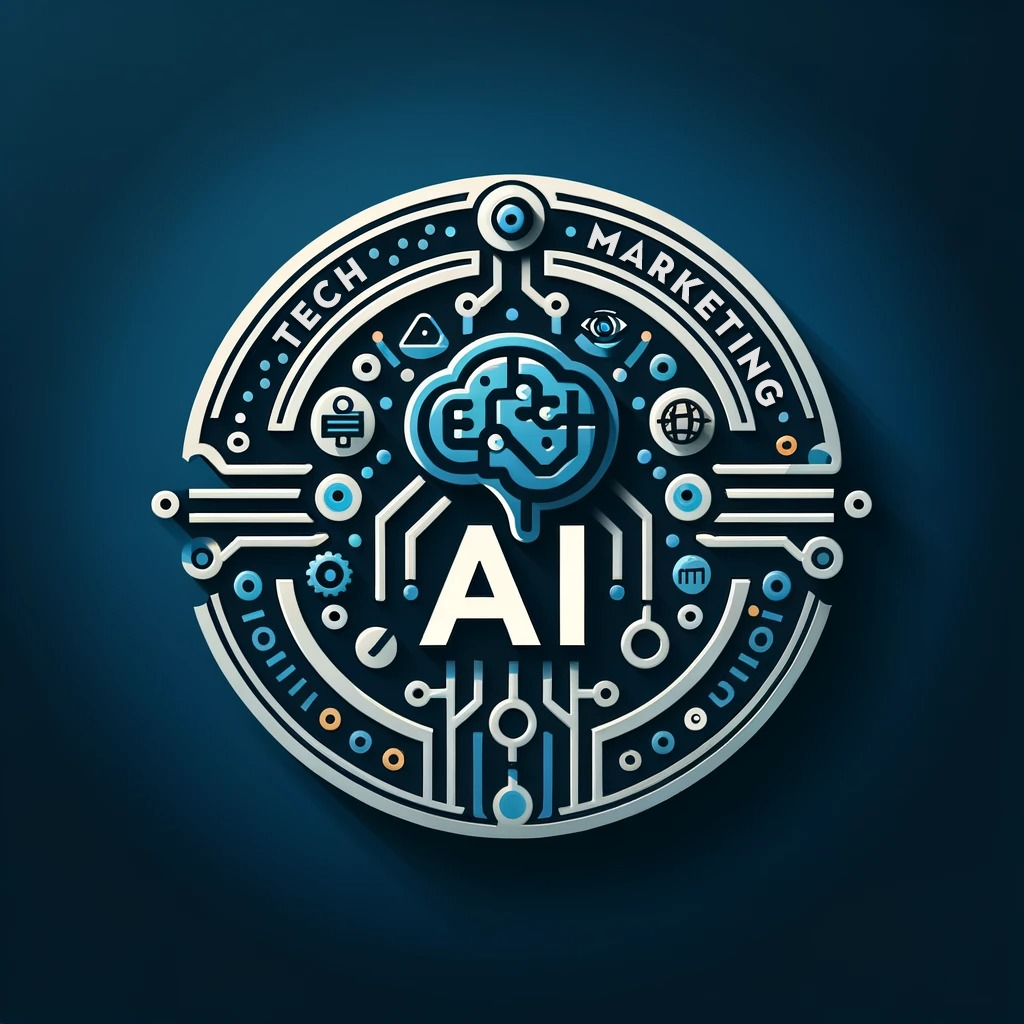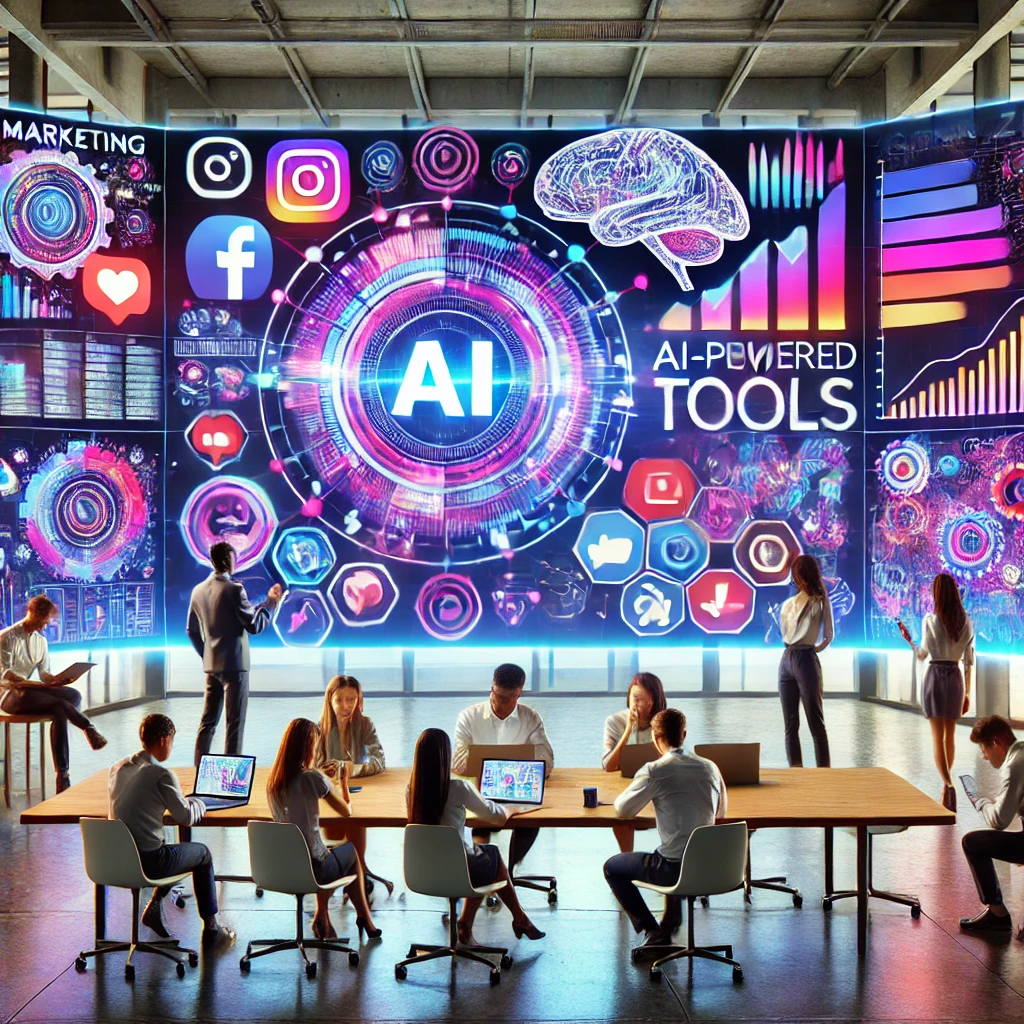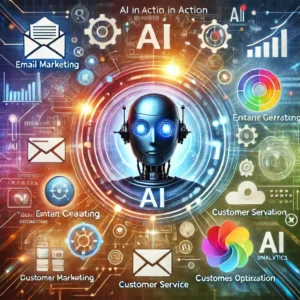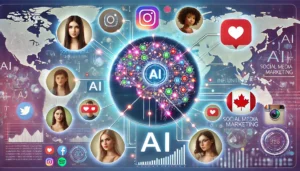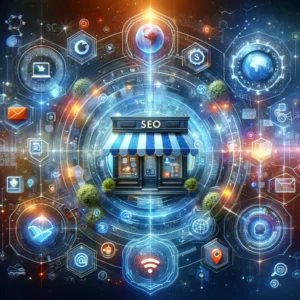The world of marketing is evolving rapidly, and businesses must keep up with the preferences of their target audience to thrive. Gen Z, the generation born between 1997 and 2012, represents a significant consumer base, with their digital-first habits and emphasis on authenticity. Harnessing the power of AI tools offers businesses a cutting-edge approach to connect with this dynamic demographic.
In this blog, we explore how AI tools can enhance marketing strategies to build a brand that resonates with Gen Z, particularly in regions like the USA, UK, Canada, Australia, and Italy.
Why Focus on Gen Z?
Gen Z is reshaping consumer behavior with their unique preferences:
- Tech-Savvy Nature: They are digital natives who seamlessly integrate technology into their daily lives.
- Value Authenticity: They prioritize brands that are transparent and align with their values.
- Social Media-Driven: Platforms like TikTok, Instagram, and Snapchat dominate their attention.
- Trend Enthusiasts: Gen Z is quick to adopt and discard trends, making adaptability crucial for brands.
- Global Mindset: With exposure to global cultures and ideas, they favor diversity and inclusivity.
Understanding these traits helps businesses tailor their strategies effectively.
How AI Tools Transform Marketing for Gen Z
AI-powered marketing tools offer data-driven insights and automation to engage Gen Z more effectively. Here are some key applications:
1. Social Media Analytics
AI tools can analyze user interactions, trends, and sentiment across platforms to:
- Identify trending topics and hashtags.
- Understand audience preferences.
- Optimize content timing and format.
For instance, tools like Hootsuite Insights and Brandwatch enable businesses to track real-time trends and respond promptly.
2. Personalized Content Creation
Personalization is critical for Gen Z. AI enables:
- Tailored recommendations based on browsing and purchase history.
- Dynamic content creation for emails, ads, and social posts.
- AI-powered copywriting tools like Jasper or Writesonic for engaging campaigns.
Personalized strategies create a sense of connection and relevance for Gen Z audiences.
3. Trend Prediction
AI excels at predicting trends by analyzing massive datasets, including:
- Emerging interests in fashion, music, or memes.
- Geo-specific cultural shifts.
- Popular influencers and their audience impact.
For example, Trendalytics and Google Trends can provide actionable insights for brands to stay ahead of the curve.
4. Chatbots and Conversational AI
Instant gratification is essential for Gen Z. AI chatbots:
- Provide 24/7 customer support.
- Offer personalized shopping assistance.
- Enhance engagement through conversational interactions.
Tools like Drift and Intercom make it easy for businesses to integrate AI-powered chat solutions.
5. Visual Content Optimization
Gen Z gravitates toward visually appealing content. AI tools:
- Optimize visuals for social media platforms.
- Generate branded graphics using tools like Canva AI.
- Analyze which type of imagery performs best.
Visually striking content increases engagement and retention among younger audiences.
Strategies to Connect with Gen Z
Here are some actionable strategies for businesses:
Invest in AI-Powered Tools
Adopt scalable AI tools tailored to your industry to streamline and optimize your marketing processes.
Leverage Data Insights
Utilize AI analytics to refine your understanding of audience demographics, preferences, and behavior.
Experiment with Formats
Engage Gen Z through short-form videos, interactive polls, and user-generated content.
Collaborate with Influencers
AI can help identify influencers with high engagement metrics who resonate with your target audience.
Measure ROI
Track and analyze the performance of AI-powered marketing campaigns to ensure consistent improvement.
Case Studies: Brands Winning Gen Z with AI
Nike
Nike uses AI to deliver personalized product recommendations and curate social media campaigns that resonate with Gen Z’s love for fitness and style.
Spotify
Spotify’s AI-driven playlist suggestions and Wrapped campaigns create a unique user experience, fostering strong brand loyalty among Gen Z listeners.
Gucci
Gucci leverages AI for trend prediction and visual content creation, aligning with Gen Z’s appreciation for luxury and digital experiences.
How Businesses in the USA, UK, Canada, Australia, and Italy Can Adapt
Each region has unique cultural influences on Gen Z, but some universal strategies include:
- Localize Campaigns: Adapt marketing messages to regional preferences and language.
- Highlight Inclusivity: Showcase diversity in your branding and advertising efforts.
- Emphasize Sustainability: Many Gen Z consumers value eco-conscious brands.
- Engage with Regional Influencers: Collaborate with influencers who resonate with local Gen Z audiences.
- Prioritize Mobile-First Content: Gen Z is predominantly mobile-first, so ensure campaigns are optimized for mobile viewing.
Future Trends in AI-Powered Marketing
The intersection of AI and marketing continues to evolve. Future advancements include:
- Hyper-Personalization: Enhanced algorithms will create even more tailored user experiences.
- Augmented Reality (AR): AI will integrate AR for immersive shopping and brand experiences.
- Voice Search Optimization: Businesses must adapt to voice-driven searches as adoption increases.
- Emotional AI: AI will analyze user emotions to deliver emotionally resonant campaigns.
- Sustainability Insights: AI will track and optimize supply chains for eco-friendly practices.
Brands that invest in these areas will maintain relevance and foster strong connections with Gen Z.
